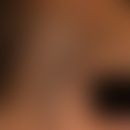Synonym(s)
PMD
DefinitionThis section has been translated automatically.
Plant repellent obtained from the lemon eucalyptus (Eucalyptus maculata citriodora) native to China. It is considered the best vegetable repellent. The active ingredient of the eucalyptus extract is p-menthane-3,8-diol also known as "PMD". Citriodiol can be used as a herbal alternative to synthetic agents such as DEET and Icaridin. It is as well tolerated as Icaridin. It is often combined with other active ingredients (e.g. DEET).
Pregnancy/nursing periodThis section has been translated automatically.
No data are available on use during pregnancy. The application is therefore not recommended.
Undesirable effectsThis section has been translated automatically.
Citridiol is contraindicated in hypersensitivity. It should not come into contact with the eyes, mucous membranes or wounds. It should also not be used on eczematized skin.
LiteratureThis section has been translated automatically.
- Carroll SP et al (2006) A registered botanical mosquito repellent with deet-like efficacy. J Am Mosq Control Assoc 22: 507-514
- Dube FF et al. (2011) Fresh, dried or smoked? Repellent properties of volatiles emitted from ethnomedicinal plant leaves against malaria and yellow fever vectors in Ethiopia. Malar J 10: 375
- Hofmann H (2015) Repellants. In: E v.Stebut (Ed.) Travel medicine. Springer Publishing House Berlin-Heidelberg294-297
- Care F (2009) Prevention with repellent in children. Arch Pediatr 16 Suppl 2:S115-122.
- Uzzan B et al (2009) Efficacy of four insect repellents against mosquito bites: a double-blind randomized placebo-controlled field study in Senegal. Fundam Clin Pharmacol 23: 589-594.



